Justin Trudeau on ‘brink of resigning’ after Deputy PM quits following Trump’s tariff warning
Canadian Prime Minister Justin Trudeau has been left “considering his options” following the sudden resignation of his Finance Minister.
Chrystia Freeland, who also served as Deputy Prime Minister, quit on Monday after clashing with Trudeau over spending policies and the handling of potential US tariffs imposed by incoming President Donald Trump.
The dramatic departure has plunged Trudeau’s Liberal Government into turmoil, with opposition parties calling for the three-time Prime Minister to resign.
Freeland, 56, delivered a stinging rebuke to the Prime Minister in her resignation letter, dismissing his push for increased spending as a “political gimmick” that could hamper Ottawa’s ability to handle threatened 25 percent US import tariffs.
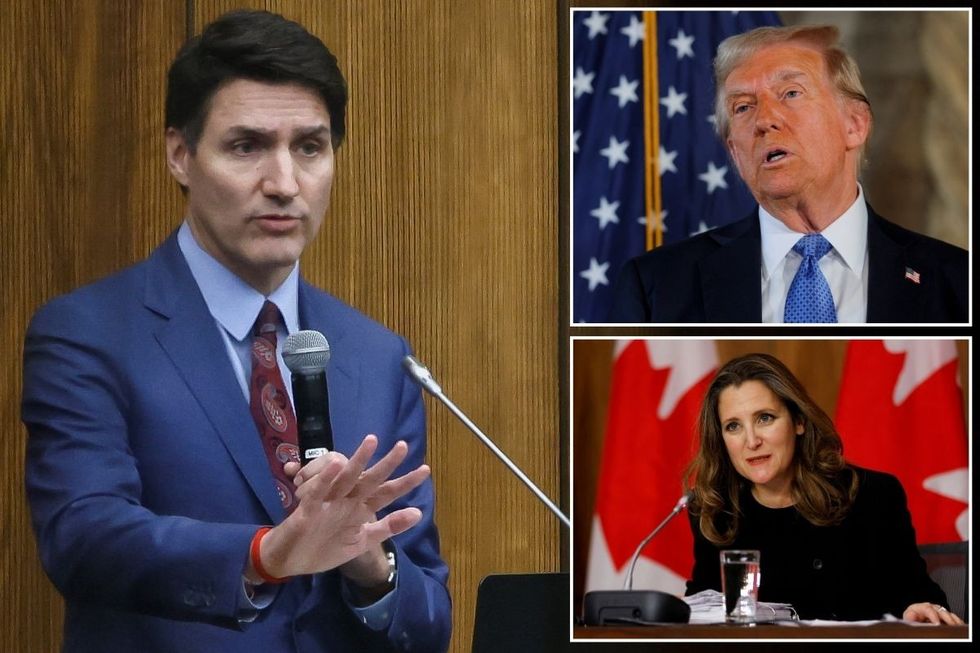
The resignation comes as Trudeau’s Liberal Government faces historically low polling numbers and mounting pressure from within his own party.
Freeland’s departure also came just days after a tense meeting where Trudeau attempted to demote her to a lesser role handling Canada-US relations.
“For the last number of weeks, you and I have found ourselves at odds over the best path forward for Canada,” Freeland wrote in her letter.
She warned that potential US tariffs posed a grave threat to Canada’s economy, arguing for fiscal restraint rather than new spending.
LATEST DEVELOPMENTS:
- Donald Trump issues ominous warning to Joe Biden amid ‘drone invasion’
- Donald Trump’s popularity ‘at an all time high’ after Time honour: ‘Unprecedented honeymoon period!’
- Donald Trump announces radical plan to ‘end Daylight Saving Time’ to save on costs
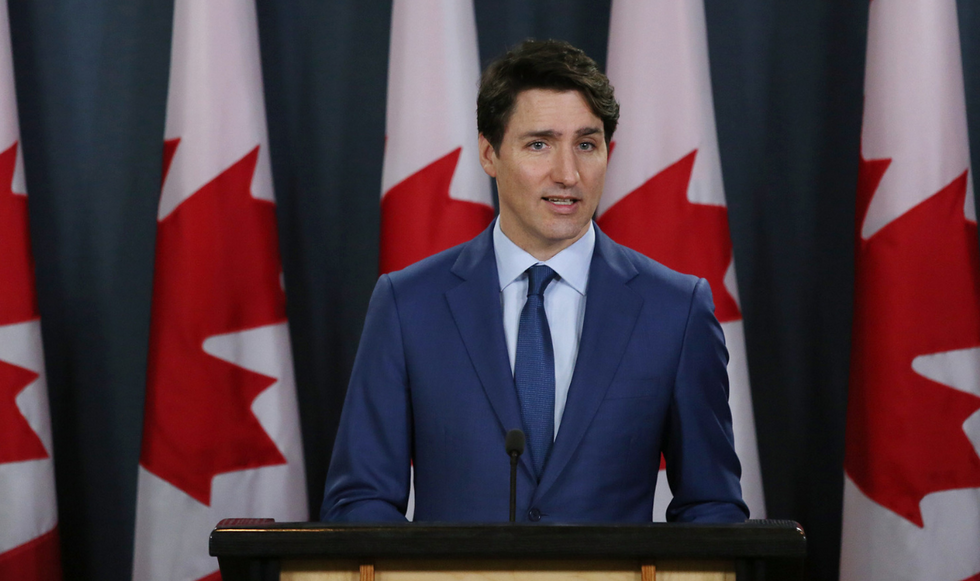
Freeland added: “That means keeping our fiscal powder dry today, so we have the reserves we may need for a tariff war.”
The timing of her resignation was particularly significant, coming just hours before she was due to present a fall economic update to the House of Commons.
The document was expected to reveal a larger than predicted budget deficit for 2023/24.
Treasury Board President Anita Anand appeared visibly shaken by the news, saying: “This news has hit me really hard and I’ll reserve further comment until I have time to process it.”
Opposition leaders swiftly called for Trudeau’s departure, with New Democratic Party leader Jagmeet Singh making his first unequivocal demand for the Prime Minister to step down.

“I’m calling on Justin Trudeau to resign. He has to go,” Singh said.
However, Singh avoided direct questions about whether his left-wing party would continue supporting the minority Liberal Government in Parliament.
Conservative leader Pierre Poilievre painted a picture of Trudeau’s Government being in disarray.
“We cannot accept this kind of chaos, division, weakness, while we’re staring down the barrel of a 25 per cent tariff from our biggest trading partner … we simply cannot go on like this,” he said.
The opposition parties could potentially topple Trudeau’s Government through a vote of no confidence, though this cannot occur until late January at the earliest.
Polling expert Nik Nanos called the situation “politically and personally devastating for Trudeau”.
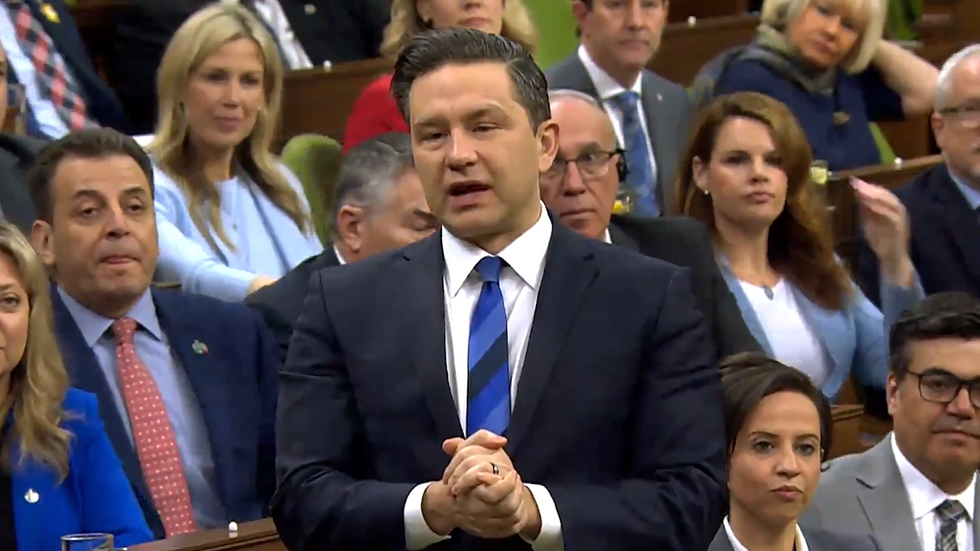
Polls indicate the Liberal Party will likely suffer a crushing defeat at the next election, which must be held by late October 2025.
Trudeau has faced mounting pressure from Liberal legislators concerned about the party’s poor polling numbers, partly due to public dissatisfaction over high prices.
Despite the crisis, Trudeau’s immediate position appears secure as Canadian political leaders are chosen through special conventions.
The political uncertainty has rattled financial markets, with Canada’s 10-year note yields climbing to their highest level since November 28.
The Canadian dollar weakened to a four-and-a-half-year low at 1.4268 per US dollar before recovering.
The crisis has particularly stung as Freeland was instrumental in renegotiating the trilateral free trade treaty with the United States and Mexico when Donald Trump first came to power in 2017.
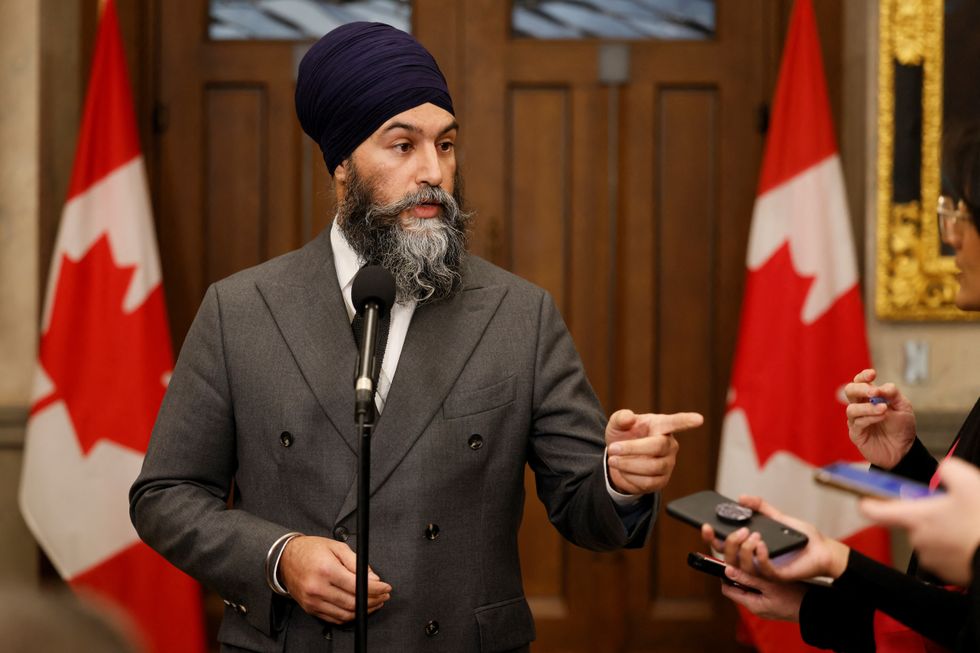
The resignation crisis facing Trudeau worsened after Housing Minister Sean Fraser also announcing his departure on the same day, although he cited family reasons.
The exodus extends beyond these immediate departures, with six additional ministers either having already quit or declaring they won’t seek re-election.
Before her dramatic exit, Freeland had served in multiple senior roles, including trade minister and foreign minister, before taking over the finance portfolio in August 2020.
She oversaw Canada’s massive spending response to the coronavirus pandemic during her tenure as Finance Minister.
Freeland’s departure also included a bitter dig at the precarious position the Prime Minister finds himself in.
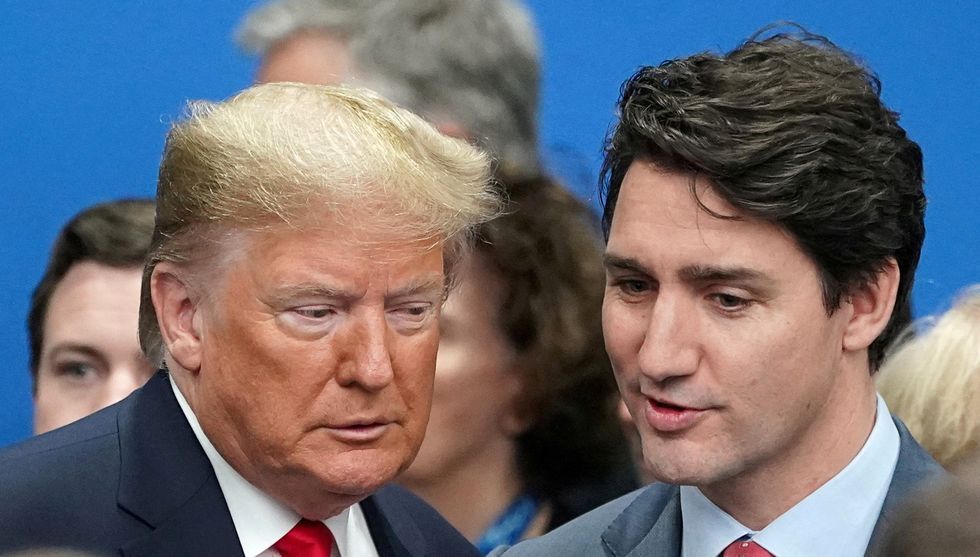
She said: “You made clear that I no longer credibly enjoy that confidence and possess the authority that comes with it.”
Former Bank of Canada Governor Mark Carney has emerged as a potential replacement for Freeland in the finance portfolio.
However, Carney, who currently serves as an economic adviser to Trudeau, would face procedural hurdles.
As tradition dictates, he would need to secure a seat in the House of Commons before taking the role.

